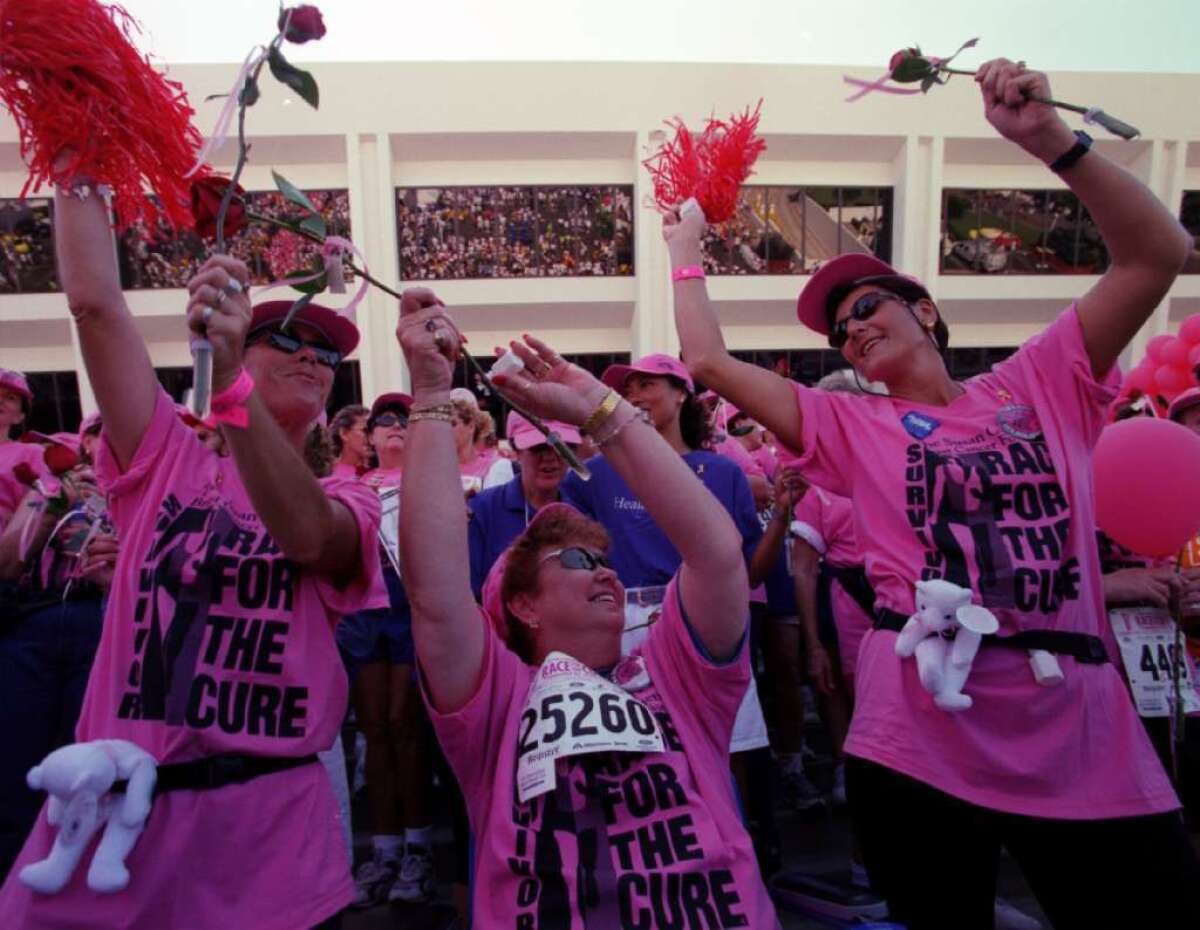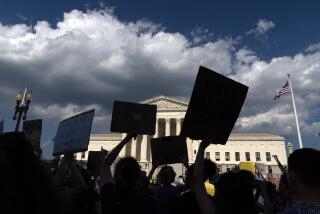Susan G. Komen Foundation discovers the price of playing politics

- Share via
The Susan G. Komen Breast Cancer Foundation committed one of the great PR faux pas of the decade in January 2012, when it summarily cut off funding to Planned Parenthood in what appeared to be a bow to anti-abortion crusaders.
Now, with its release of its latest financial statements, the cost of that decision can be measured: It’s more than $77 million, or fully 22% of the foundation’s income. That’s how much less the Dallas-based foundation collected in contributions, sponsorships and entry fees for its sponsored races in the fiscal year ended March 31, 2013, compared with the previous year. The raw figures are these: In the most recent fiscal year Komen booked $270 million; the year before that, Komen booked $348 million.
Last year’s decline was a continuation of a slightly longer trend. In fiscal 2011 the organization collected $367 million. Komen officials are candid in attributing much of last year’s sharp decline to the Planned Parenthood controversy, though they also point to the general economic slump. Participation in the group’s signature Race for the Cure events is also down.
The foundation’s decision to cease funding Planned Parenthood was a huge blunder. Komen officials said at the time that they had merely tightened grant eligibility rules to exclude groups under investigation by government authorities -- Planned Parenthood was the target of a ginned-up “investigation” by anti-abortion Republicans in the House.
The decision by the nation’s leading breast cancer charity to defund the nation’s leading provider of health services to women sparked a predictable uproar, and Komen reversed the decision after only three days.
But the damage was immediate and, plainly, lasting. There were indications that the original decision had been driven by Karen Handel, the organization’s vice president for public policy, who had joined Komen after losing a race for governor of Georgia on an anti-abortion platform. She resigned from Komen days after the reversal.
The affair led to more public scrutiny of the foundation’s own record. It transpired, for instance, that while the foundation depicted itself as devoted chiefly to research for a breast cancer cure, it spent only about 20% of its donations on research; the biggest expenditure category was public education, at more than 50%. Critics questioned whether “education” really should be such a heavy priority in a field where research issues remain important.
Since the controversy, the foundation has struggled to regain the nearly unquestioned public support it once had. Its founder, Nancy Brinker, a prominent figure in the Texas GOP who says she founded the organization after her sister Susan Komen succumbed to breast cancer, has stepped down as CEO.
The organization hopes that time is erasing the black mark left by its foray into abortion politics. People “tend to say, ‘OK, we were mad about that but we’re not mad anymore,’ ” a spokesman told the Associated Press last week. But so far, time hasn’t been on Komen’s side.
More to Read
Sign up for Essential California
The most important California stories and recommendations in your inbox every morning.
You may occasionally receive promotional content from the Los Angeles Times.












